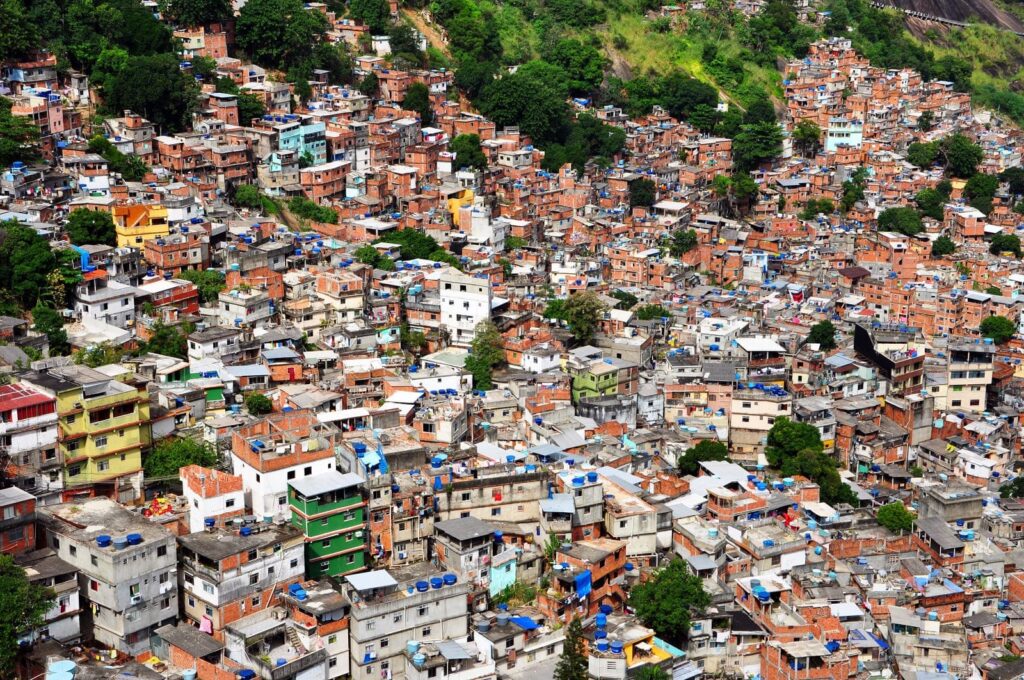
The police operation launched yesterday in Rio de Janeiro against drug trafficking and the group known as Comando Vermelho continued throughout the day today, bringing the death toll to at least 132 people, including four police officers. This grim reality makes this week one of the bloodiest in Rio de Janeiro’s recent history, according to sources from the Rio state public defender’s office.
The initial figures released by the state administration varied considerably, raising questions about the transparency of the data. While some reports suggest the death toll far exceeds one hundred, other sources put the number at just over 64.
Meanwhile, dozens of bodies have been piling up along the roadside, as Brazilian President Luiz Inácio Lula da Silva said he was “horrified” by the number of deaths, and Colombian President Gustavo Petro condemned the operation from Saudi Arabia, where he is on an official visit.
Drug trafficking crackdown in Rio de Janeiro leaves 132 dead in Brazil
The operation took place in the favelas of Complexo do Alemão and Complexo da Penha, in Rio de Janeiro’s northern zone. Around 2,500 state police officers — including civil, military, special, and riot units — entered the area using armored vehicles, helicopters, and drones in what authorities described as an offensive against the criminal group Comando Vermelho.
According to the state police, the action was the result of a long intelligence effort to deliver a “historic blow” to the organization, which controls territory in the northern favelas of the city. In a statement, Governor Claudio Castro described it as “the largest operation in the state’s history” and insisted that “only the police were true victims.”
On Tuesday morning, residents described scenes reminiscent of a battlefield: Explosions, drones dropping charges, barricades made from burning buses, and intense exchanges of gunfire. Later, dozens of bodies were lined up on a public road leading into the Penha complex, shocking the local community.
The state prosecutor’s office and human rights organizations have noted that many of the deaths appeared to have occurred in wooded areas and away from civilians — according to the police version — but the community accuses the authorities of extrajudicial executions without due process. “This wasn’t an operation, it was a massacre,” said a local activist.
Reaction from Brazil’s federal government: Lula ‘horrified’
President Lula da Silva expressed on Wednesday his “horror” at the magnitude of the death toll and admitted that the operation had taken place without prior notification to the federal government, a fact that has created tensions between the federal capital and the state of Rio. The Justice Minister said that deploying federal support forces would be considered and that an investigation into the events would be opened.
Strong criticism of the methods used emerged from various quarters. Human rights organizations — including the Office of the United Nations High Commissioner for Human Rights (OHCHR) — and local civil groups warned of excessive police force, a lack of transparency about the victims, and the impact on the civilian population.
Meanwhile, Governor Castro defended the operation, claiming it was a fight against what he called “narco-terrorism.” “I don’t believe anyone was strolling through the woods on a day of conflict; those who died can safely be classified as criminals,” he told reporters.
This incident comes at a key moment for Rio de Janeiro, as the city prepares to host events related to the COP30 global climate summit and the C40 mayors’ summit, placing it under international scrutiny.
It is also significant that Castro is considered an ally of former president Jair Bolsonaro, adding a political dimension to the analysis of the operation. According to reports, President Lula had not been informed in advance of the operation’s scale, raising questions about relations between the federal and state governments.
On Wednesday, Lula convened several of his ministers at his official residence in Brasilia. A delegation from his government is expected to travel to Rio to hold an “emergency meeting” with Castro.

Colombia’s Petro calls the events ‘barbaric’
For his part, Colombian President Gustavo Petro condemned the events, calling them an act of “barbarity,” and warned about how “the world of death takes over politics.”
“This fight against the gangs is nothing but barbarity; the world of death takes over politics. Rio de Janeiro,” he wrote Wednesday afternoon from Riyadh, Saudi Arabia, where the Colombian leader is on an official visit.
Hours later, Petro compared the military operation in Rio de Janeiro’s favelas to the tragedy that took place in Medellin’s Comuna 13 neighborhood during the darkest years of drug trafficking, which ended in a massacre carried out by security forces. “From Bolsonaro’s line, Claudio Castro, with his Rio de Janeiro police, left 132 dead in the favelas of Rio. Just like the Comuna 13 operation in Medellin,” he wrote.
Está luchas contra las bandas no es más que barbarie, el mundo de la muerte se apodera de la política.
Rio de Janeiro. https://t.co/JMjpvLi8gN— Gustavo Petro (@petrogustavo) October 29, 2025
See all the latest news from Colombia and the world at ColombiaOne.com. Contact our newsroom to report an update or send your story, photos and videos. Follow Colombia One on Google News, Facebook, Instagram, TikTok and subscribe here to our newsletter.


